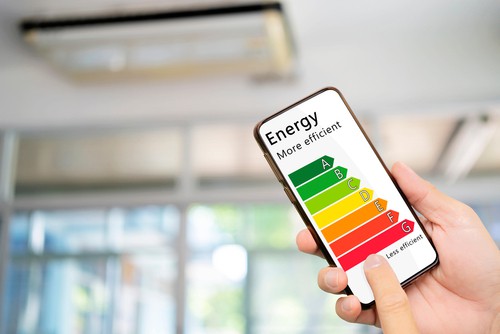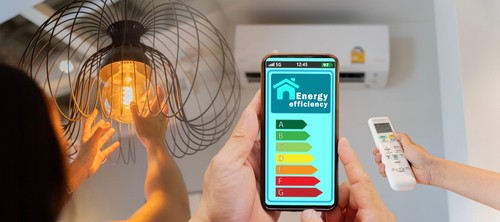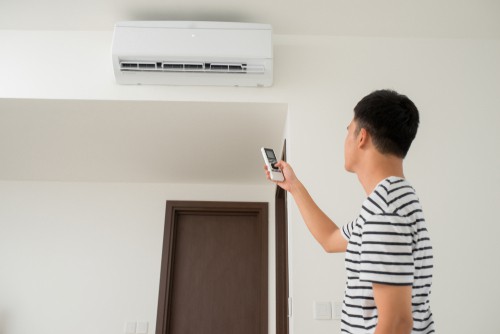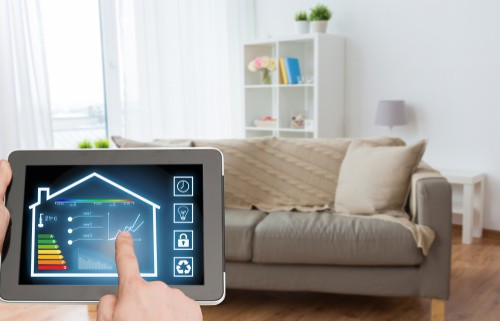
Guide to Energy Efficiency Ratings for Aircon Units – Why Energy Efficiency Matters?
Energy efficiency isn’t just about environmental sustainability; it’s about reducing energy consumption and thus saving on your electricity bills.
An energy-efficient air conditioner cools your room faster and consumes less energy, leading to significant cost savings over the unit’s life.
Energy Efficiency and the Environment
On a broader scale, energy-efficient appliances contribute to a greener environment by reducing power demand and reducing the need for burning fossil fuels.
By understanding and utilizing energy efficiency ratings, we can all play a part in achieving Singapore’s climate targets.
Understanding Energy Efficiency Ratings in Singapore
Singapore’s National Environment Agency (NEA) uses the Tick Energy Labeling Scheme to rate air conditioners’ energy efficiency.
This labeling scheme makes it easier for consumers to compare and choose energy-efficient appliances.
The Tick Energy Labeling Scheme
The Tick Energy Labeling Scheme provides air conditioners with a rating from one to five ticks, with five ticks indicating the highest level of energy efficiency.
This rating system is based on an appliance’s annual energy consumption and cooling capacity, measuring the air conditioner’s energy efficiency under typical usage.
The Mandatory Energy Label (MEL)
In addition to the Tick rating, aircon in Singapore must also carry a Mandatory Energy Label (MEL).
The MEL contains detailed information about the product’s energy consumption and performance, thus allowing consumers to make an informed decision.
Choosing the Right Aircon for Energy Efficiency

Consider the Energy Efficiency Ratio (EER)
The Energy Efficiency Ratio (EER) is crucial in determining an aircon’s energy efficiency.
The EER is the ratio of the cooling capacity (in BTU per hour) to the power input (in watts).
A higher EER signifies a more efficient air conditioning unit.
Size Matters
Choosing the right size air conditioner is critical for optimal energy efficiency.
An oversized aircon uses more energy than necessary, while an undersized unit struggles to cool your room, leading to wasted energy.
Regular Maintenance
Even the most energy-efficient aircon can lose its effectiveness without regular maintenance.
Routine cleaning, filter replacement, and checks can keep your aircon running efficiently.
The Future of Energy Efficiency in Singapore
Singapore’s push towards a sustainable future is mirrored in its stringent regulations and programs encouraging energy efficiency.
As technology progresses, we can expect even more energy-efficient air conditioners on the market, contributing to a greener Singapore.
FAQ about Energy Efficiency Ratings for aircon
Why is regular maintenance essential for maintaining the energy efficiency of aircon?
Regular maintenance ensures that your aircon continues to operate at its optimal energy efficiency.
Tasks such as cleaning the air filters, checking for refrigerant leaks, and ensuring the outdoor unit isn’t blocked can help maintain the efficiency of your aircon.
What impact does energy efficiency have on the environment?
Energy-efficient appliances consume less electricity, leading to reduced greenhouse gas emissions.
By choosing energy-efficient aircon, you’re saving on your electricity bill and contributing to the fight against climate change.
How can Inverter Technology improve the energy efficiency of aircon?
Inverter Technology allows aircon to adjust its speed and energy consumption based on the cooling requirement.
This results in more efficient energy use than traditional aircon operating at a constant speed.
What is the future of energy efficiency for aircon in Singapore?
With advancements in technology and the commitment to reducing greenhouse gas emissions, the future of energy efficiency for aircon in Singapore looks promising.
From smart aircon that adapts to your usage patterns to government incentives for energy-efficient appliances, many factors contribute to making air conditioning more energy-efficient.
Tips for Maximizing Aircon Energy Efficiency

Optimal Temperature Settings
Setting your aircon temperature to an optimal level can significantly impact its energy efficiency.
The recommended temperature for a comfortable indoor environment is 24 to 26 degrees Celsius.
Each degree lower can increase energy consumption by around 10%.
By avoiding extremely low temperatures, you can conserve energy and reduce your electricity bills.
Utilize Energy-Saving Modes
Most modern air conditioners have energy-saving modes or features such as “Eco Mode” or “Energy Saver Mode.”
These modes adjust the compressor and fan speed to optimize energy usage without compromising cooling performance.
Be sure to enable these modes to enhance your aircon’s energy efficiency.
Proper Insulation and Sealing
To ensure that your air conditioner operates efficiently, it’s essential to have proper insulation and sealing in your home.
Insufficient insulation can lead to heat gain, causing your aircon to work harder and consume more energy.
Insulate your windows, doors, and walls, and seal any gaps or leaks to prevent cool air from escaping and hot air from entering.
Smart Ventilation and Sun Shading
Strategic ventilation and sun shading can significantly impact your indoor temperature and reduce the workload on your aircon.
Utilize curtains, blinds, or window films to block out direct sunlight during the hottest parts of the day.
Additionally, ensure proper cross-ventilation in your home to allow for natural airflow and reduce reliance on the air conditioner.
Guide to Energy Efficiency Ratings for Aircon Units – Conclusion

Understanding and taking advantage of energy efficiency ratings when buying an air conditioner is a wise move for both your pocket and the environment.
By focusing on the Tick Energy Labeling Scheme and other related factors, you can ensure you’re choosing an air conditioner that will keep you cool, reduce your energy usage, and help contribute to a more sustainable Singapore.
With the proper knowledge, the path to energy efficiency is well within our reach.
